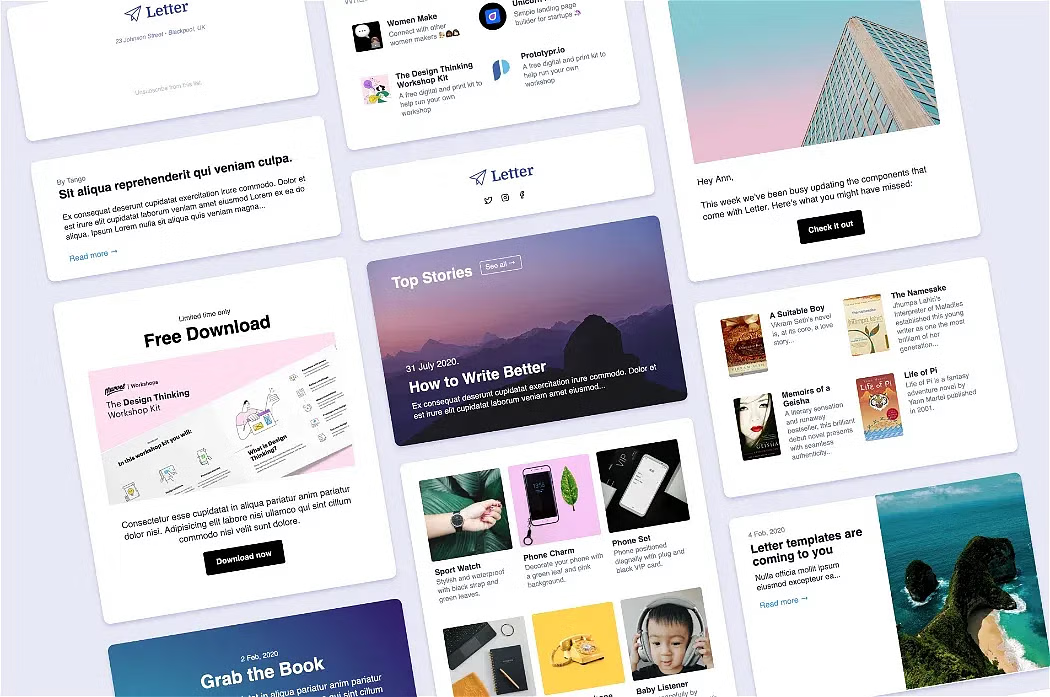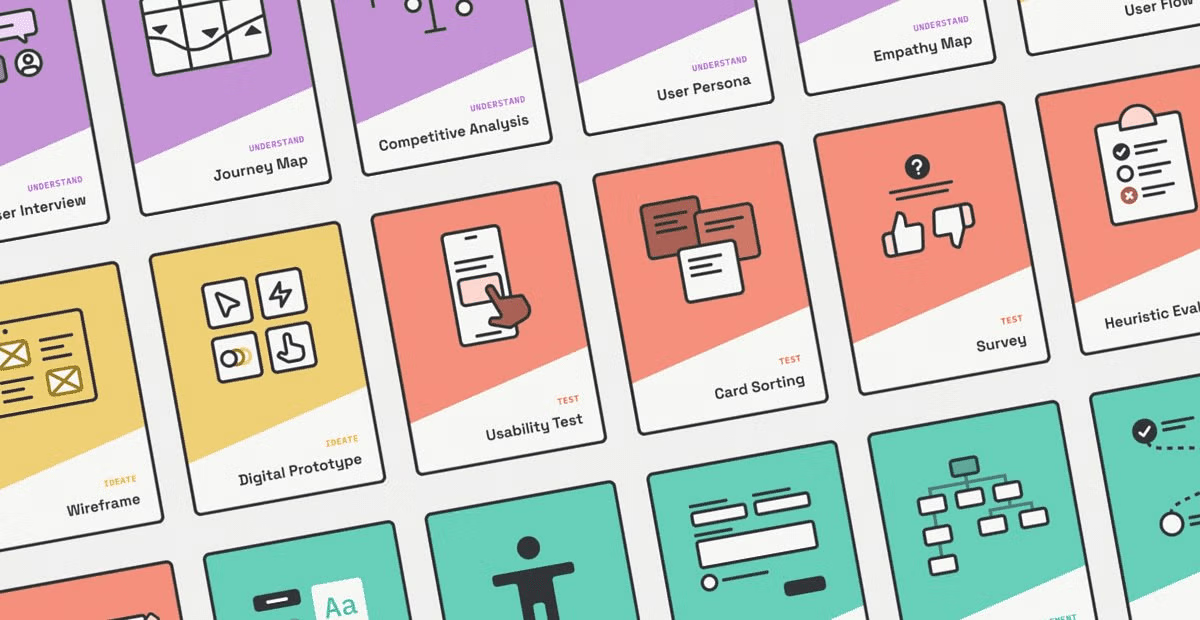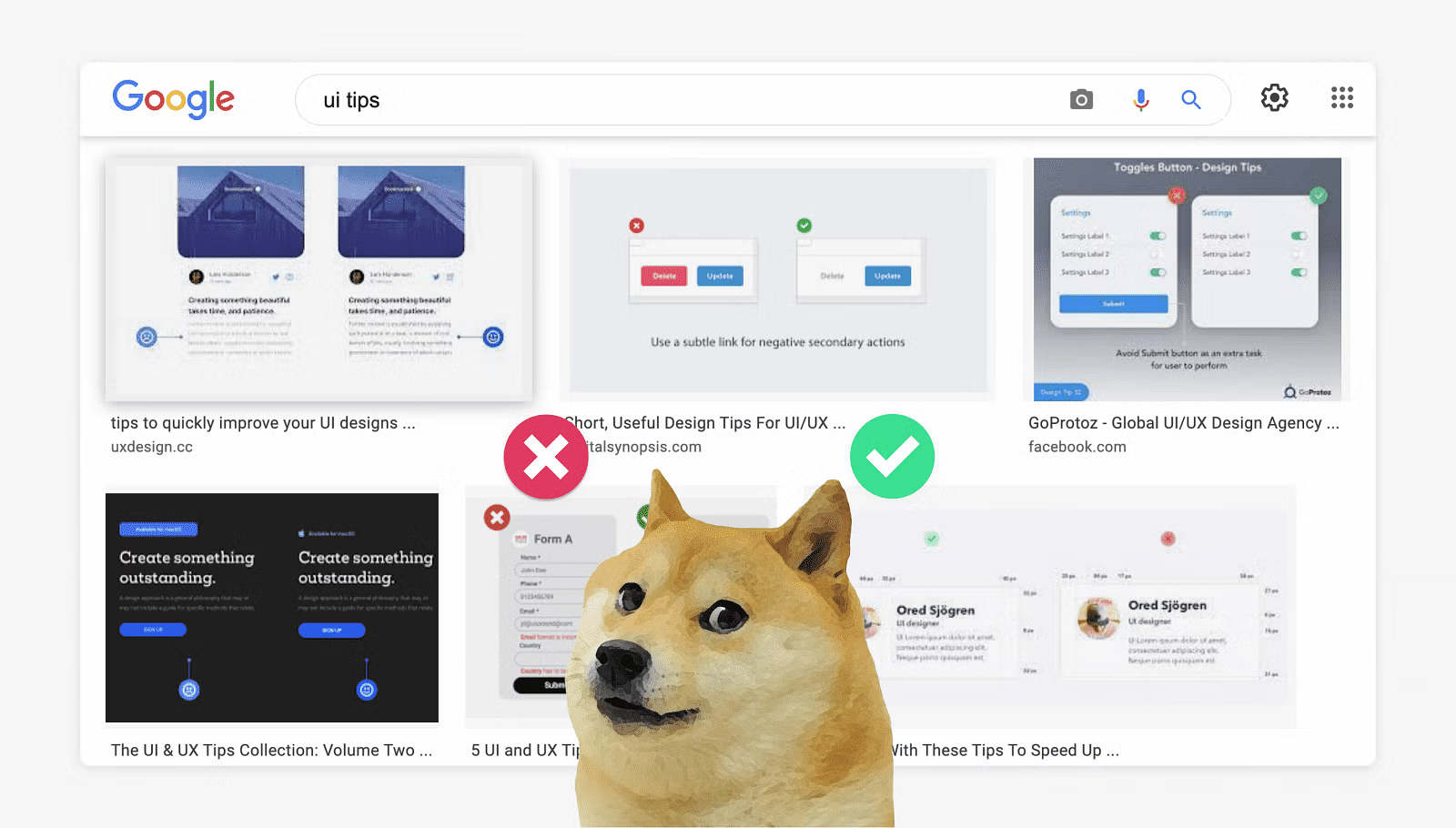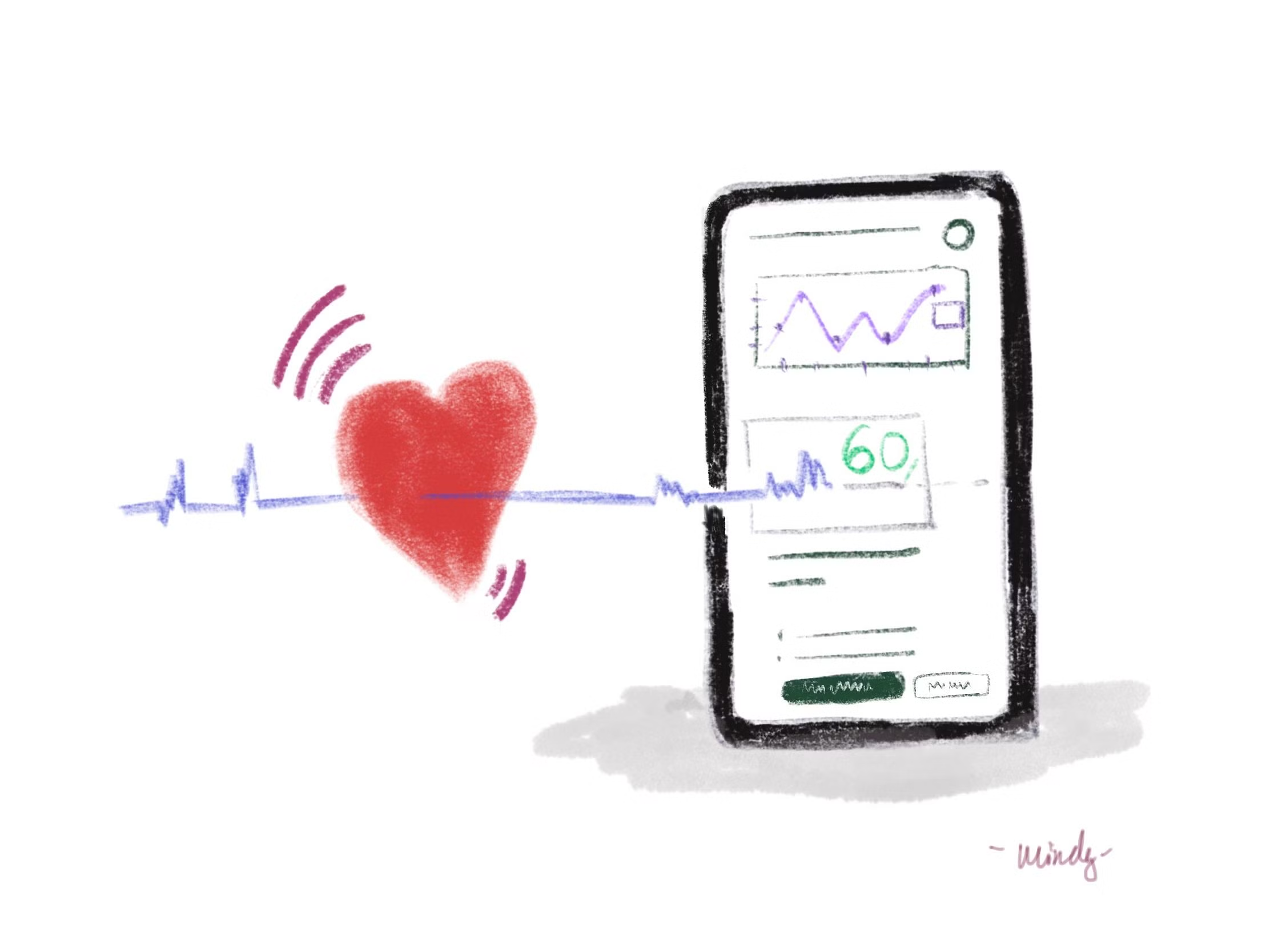Because let’s face it, you probably can’t get one because you suck.
Before I switched to private mentoring, I had loads of 1-on-1s with juniors with the same problem: The inability to get their first job in UX.
The common story line starts with them having already searched for a job for months; some half a year, some more than a year. Some of these people I do feel empathy for, as they are pretty decent designers caught in the eye of the hiring shitstorm. A lot of people though, I really wish they would just quit.
It’s hard to throw tough love at strangers you didn’t meet; it paints me as a judgemental person. But even at the risk of backlash (that already happened), I did invest in UX before anyone ever batted an eye at it, so I think I can afford to tell all of you off even at the risk of backlash.
*I thought about it, and yes, I do consider myself judgemental and harsh. I’m not going to coddle anyone. I’m not a messiah. I’m just a small-time designer dishing out truths for those that want to listen.
Not getting a job is a big problem that many mentees come to me seeking advice for. This article is exactly the kind of pep-talk I give them, with all of the advice I repeated over this last year.
If you can’t take it, you’re pretty much screwed.
Did you know that successful design schools actually has gatekeeping in place? When you apply to a design school, you are expected to submit your grades, your portfolio and go through interviews to be even considered as a valid applicant to enrol in their courses.
If you’re not good enough, you get the boot before you step in front of the door.
This same phenomenon happens in design hiring today. The trend that I observe is people who went to get certificates, but ultimately aren’t good enough, whining about not being able to find a job because “the industry is adverse to juniors”.
To be the bearer of bad news: if you can’t get a job, it’s usually because you’re not good enough. The industry is not adverse to juniors. The industry is adverse to people who doesn’t meet expectations. We are critical to all levels equally.
You can’t blame your failures on the market shift or how competitive it has gotten and will continue to get. You’ll look stupid trying to blame your failures on anything else but yourself. (Everyone can see you on LinkedIn, so just don’t put yourself in that situation.)
The victim-mentality doesn’t help anyone. So my first advice is to snap out of it.
The saturation in UX is a problem that was created by yourselves
My network and I noticed how UX aspirants complain about the amount of people flooding the industry every single day.
“The industry is so saturated!”, every forum, support group and online communities lament.
Who’s fault do you think is that?
Well most people would blame bootcamps, the saturation of the market is also something that you, a consumer, contribute to.
You were the one who bought into the marketing and followed the herd. You were the one that didn’t plan your career properly. You were the one that didn’t realise UX is just a job.
The impossible problem that industry practitioners are dealing with is terribly skilled professionals entering the industry with no gatekeeping, which keeps us from efficiently hiring and training people for bigger things other than UX.
The saturation we face today is a problem that each and every one of you contributed to. If you are a UX instructor, a UX mentor, a UX student or just someone interested in UX: Fuck you, because you’re just contributing to the problem.

Letter
Juniors today suck, and seniors today aren’t given the bandwidth to train them
A close confidant of mine cried to me about his juniors one day.
“I’m flooded with work on a day-to-day, and I find myself having to fucking clean up after them.
To make things worse, they show absolutely no initiative and need a lot of hand-holding. One of them even asked for help to clean up his files yesterday. I’m not your fucking maid!”
Now, let him vent. Being a senior today is not easy.
This is a common problem that we see at workplaces since eons ago. Senior designers having to tank heavier workloads, and also having to train the juniors they manage. The only difference, though, is that we are more macro-output-focused today compared to before, thanks to our sprint methodologies. So there really isn’t time to do the latter unless we burn ourselves out.
While it’s easy to say that seniors can do a knowledge transfer with juniors, understanding the knowledge and being able to apply it is a different ball game altogether. Especially for design.
Design is an industry full of ambiguity, and juniors need to have the initiative to explore the unknowns by themselves. It’s not realistic to rely on senior and lead designers to constantly give an answer and develop someone else’s career long-term.
So if you’re in a design team where seniors or leads don’t guide you, cut them some slack. They’re definitely not having an easy time dealing with the work environment and dealing with you.
Sunk cost fallacy in the industry is real
A lot of UX aspirants invested a lot and gave up plenty to be here. But making stupid sacrifices doesn’t make you entitled to success more than anyone else.
Too many people don’t plan their finances before they quit their job or do something drastic to make the switch. And because of this huge, stupid initial investment, they keep at it, not giving up even when their bank account is nearing red.
The notion of never giving up is stupid in this case. There are times where you should just quit because you’re just going to lose more than you gained at some point.
If you’re near a dangerous financial milestone: Just give up. Accept failure. Accept that you lost.
You not getting a job yet is a sign that it is not the right time. Your motivations aren’t enough, your skills are not good enough, and you’re not lucky enough. So stop whatever you’re doing, go back to your previous life, and maybe in a less turbulent future, equipped with better skills, you can try again.
“If you fall down nine times, you gotta reassess your walking, ’cause something’s wrong.” — Gina Lenetti, B99
Harsh truths about careers and the UX industry that no one tells designers
During my previous job hunt, I went through many panicked emotions. It had been 2 months and my interviews were getting nowhere. It was sort of expected: I was in a new country, with a much bigger and more established talent base.
I wasn’t back in Singapore where the UX industry is immature and weak. I was in Europe, the land of my first design leads. A place where university education is affordable, so everyone around me has formal education, on top of their years of experience.
As a new immigrant with no university education, I felt very out-of-place.
I thought about what else I could do if I failed to secure employment. My local Macdonald’s is always hiring; that wouldn’t be a bad option to take to survive. I could kickstart my freelance career again, or start an online business like I’ve always wanted to.
Before I could ponder and act on all my alternative options, I thankfully got offers from three amazing companies.
But my point is this: I considered other options. If you’re struggling with your job search, maybe it’s time for you to do the same.
The upward career path for designers is diluted
With the amount of juniors being forced into senior-level roles and titles straight out of their first jobs, the career pathway of UX designers is a blur.
There were never really guidelines to who deserves to be called a senior; hiring managers (or designers themselves) usually make that decision based on multiple factors, like years of experience, skill, job scope, and salary. This allowed truly exceptional designers to climb up the ranks fast and be ahead of their careers compared to their peers.
However, the phenomenon we’re seeing today is companies burdening junior designers with senior roles before they are even ready. In a saturated market where job offers are hard to come by, no junior would say no to a job offer, let alone one that gives them a nice title and a higher starting salary.
Also, honestly, some of you have huge egos. No, don’t tell me you have imposter syndrome accepting a senior role. It’s not imposter syndrome if you ARE an imposter.
But I digress, the real problem with this is that there is very little upward career mobility after senior roles. Go on, write down five positions hierarchically above a senior-level. Then think about the possibility of getting there with your current experience and job scope.
You’ll find that the market barely has anything substantial to offer, especially for individual contributor roles. So congrats on peaking early, but what’s next?
Not much, not much at all.
There is not much left to design
While those working in blockchain and AR/VR would scream bloody murder at me, you usually don’t get to design much groundbreaking products in the digital world anymore.
It doesn’t help that design systems and UI kits can be bought for really cheap, UX patterns and laws were established years ago, and we’ve gotten to the point where we even pay attention to words enough to design language systems for product. Your work in UX is starting to mean nothing, and anyone that says otherwise is delusional.
When I was a junior, I was going from one job to another, working in different industries and on different products, but ultimately doing the same work over and over again. I didn’t have the chance to create anything new, and I wasn’t working on anything cool.
And that is the reality of design jobs for a bulk of people. You are literally a in-house consultant, cleaning up after other designers, developers and project managers on repeat.
A robot could replace us. And that wouldn’t even be an exaggeration.
Even if you get the first job, you need to think about your second
Professionals that successfully get their first job in UX like to boast about it online. Congratulations, let me know again when you manage to get a second one.
The first job you land will always be a fluke. Other than being better in your work than most low-quality candidates today, or being lucky, there isn’t anything else that labels you as a successful design professional.
You will always need to keep working on yourself in order to stay ahead of the curve. I personally spend my evenings going through new courses and practicing certain skills that I don’t get to utilise in my day job.
Juniors that managed to get their first job but can’t get their second always come to me pretty frustrated. Unfortunately, my usual diagnosis is complacency. You cannot stop learning even after you’ve gotten your first job, because that would put you in a difficult spot in the future.
Invest time in being curious and learning more about the industry. At the end of the day, the people that come out at the top are the ones who put in their best foot forward. So keep picking up new skills, hone your craft and continue being interested in UX.
You’ll realise you either like the world of design outside of UX, or you don’t. Either way, you’ll have a clearer direction of where you want to head next and you’ll give yourself time to prepare for that.
Life has other options on the table
Many practitioners who have been in the industry for long often decide to leave and be authors, speakers and thought leaders as a full-time profession. Some of them start their own design agency, some of them completely move on from design to focus on their families or other businesses completely unrelated to design.
Life happens. Your career isn’t forever. There are other options to pursue.
I find too many people narrowing down their career goals to just coming into UX and tech, thriving in it and doing nothing else. While admirable, it’s not realistic to only focus on one thing the entire time.
The era of staying at the same job for decades is over.
I’ve said this many times before, UX is just a job. It’s no different from being a customer support specialist, a content creator, or a librarian. Like every other job in the market, it has it’s benefits and catches.
If you can’t get a job in UX, it’s not the end of the world. There are other, feasible options that you can explore. My mentees have landed amazing jobs as PMs, customer support officers and QA testers and they are building their pathway to transition in the future. Having a job is better than being unemployed. Be smart about this. Sometimes it is not worth being picky.
Closing thoughts
With this article, I hope to be the voice of reason to many of you who are currently struggling in getting employment in the UX industry. While I would love to be a positive Aunt Agony, giving you advice and tips on how you can land a job, encouraging some of you is only going to harm you further.
There’s so many resources online on how to get a UX job. There’s many success stories of others that managed to do so. There’s also many failures you don’t hear about, because anything negative dies off quickly and quietly in support communities and bootcamp cults.
This industry, like many others, is a winner-take-all scenario. There’s hundreds of thousands of UX practitioners today, but only a limited amount of jobs.
Only the best make it, the rest of you literally don’t matter. You can whine about it, but it’s not going to get you anywhere.
The last thing I want is to recycle positive content, and be another delusional voice telling you that, “You can do it!” when no, you likely can’t. The industry has always been harsh. If you aren’t good enough, you just can’t make it.
Be it shifting to another tech profession, another UX specialisation, or giving up, this is a decision you have to make after making yourself aware about the current state of UX and your current position.
To all those UX-ers struggling for a long time, wake up and learn to give up. It’s not what you want to hear, but I’m doing you a solid telling you this.
Being very real with you here: If you can’t take even my words, you can’t survive the industry. Before you come at me, beat my employment record first.
Originally published on Prototypr's Medium.












